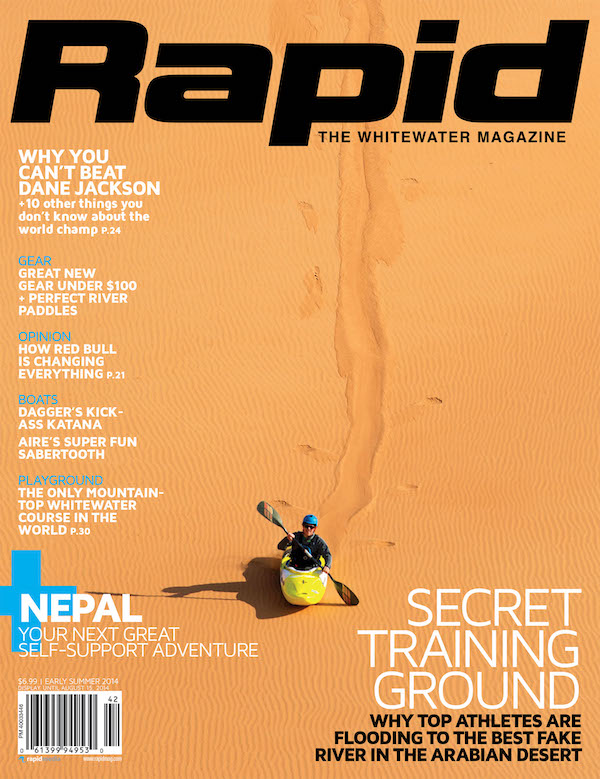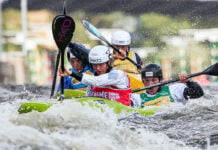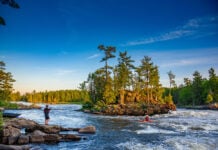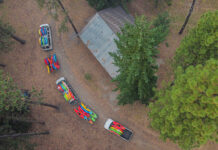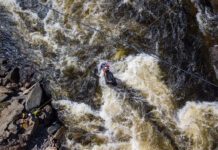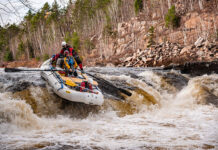“Because it’s there,” has been one of the most famous phrases in adventure sports since George Mallory’s 1923 justification for attempting the as-yet unclimbed Mount Everest.
Unfortunately for us outdoor types, this explanation is much more shallow than it is profound. Paddlers and climbers alike deal with a public perception that we are reckless risk takers. Mallory’s words contribute to us being written off as irresponsible and totally lacking in reflection.
I am dog paddling my way through a PhD—something I don’t recommend for a middle-aged person hoping to maintain a life—and my field of study is the psychology of motivation. One consistent belief in this area of research is that people cannot be trusted to explain why they do the things they do. Motivation is complex and there is no one reason for anything we do, let alone the highly biased reasons we provide to validate our actions.
In October,74-year-old French mountaineer Bernard Amy gave a speech at the Italian Academic Alpine Club that articulated what many before him have attempted and failed. He included all mountain sports, to which we paddlers belong, when he spoke of the social contract that allows each of us the freedom to do what we want as long as our actions are acceptable to society.
A social contract is guided by nebulous standards of what is, and what is not, socially acceptable. So long as we live up to those standards, we have permission to do what we choose.
Adventure activities live on the border of such acceptance because people who don’t do them have a hard time understanding why we’d want to explore a remote river or throw ourselves off a waterfall.
“We must explain what the mountains give us,” he said. “We must not try to explain why we go to the mountains but what we find there.”
Amy is helping to change the conversation. He proposed that in order for risky activities to be accepted we should stop trying to explain why we do them, and instead focus on what we learn from them.
“We must explain what the mountains give us,” he said. “We must not try to explain why we go to the mountains but what we find there.” In other words, our own personal reasons for paddling may not justify the risk, but its outcomes may.
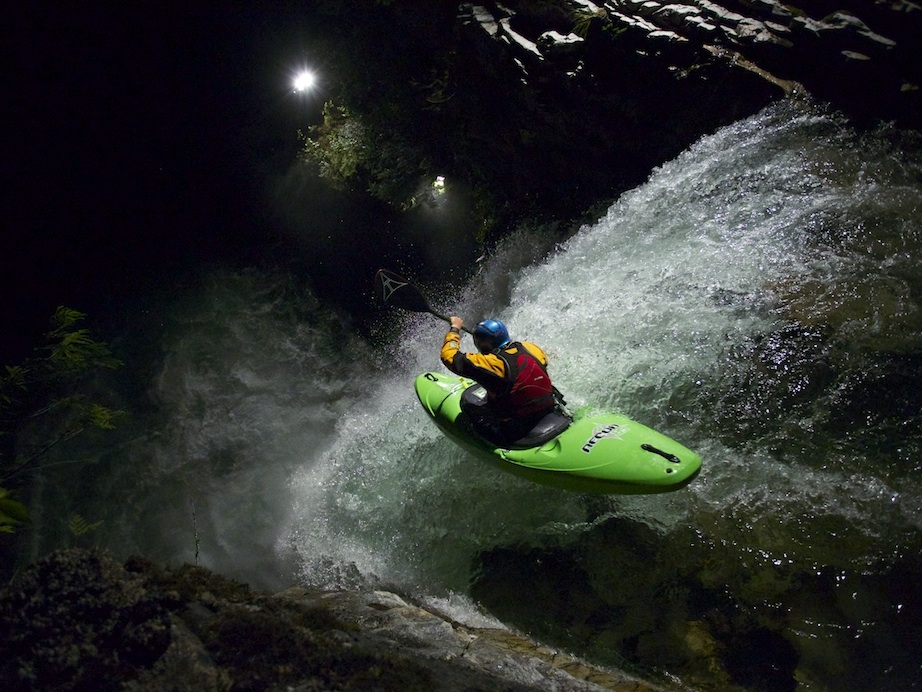
Amy said adventure sports build courage through reasoned risk-taking and grow responsibility and initiative in its participants. They require us to be both independent and able to work cooperatively in teams. They build confidence and character.
When you look at it this way, whitewater paddling is not only acceptable but important. It’s a vehicle to provide skills and abilities widely recognized as lacking in today’s society.
Despite our untrustworthy understanding of our own motivations, Amy is helping to renew the social contract by pushing us to recognize the valuable outcomes of our sport. Whitewater paddling is slowly moving in from the fringes of social acceptance. You now see whitewater boats on the roof racks of cars in mainstream advertising, and more people than ever are giving it a try, according to the Outdoor Industry Association’s 2013 Participation Report.
Even if we can’t always explain it, we know there’s a whole lot more to running a river than because it’s there.
